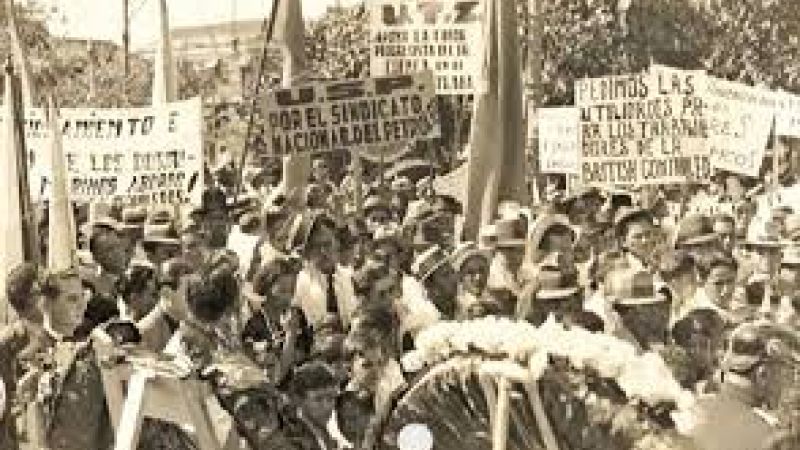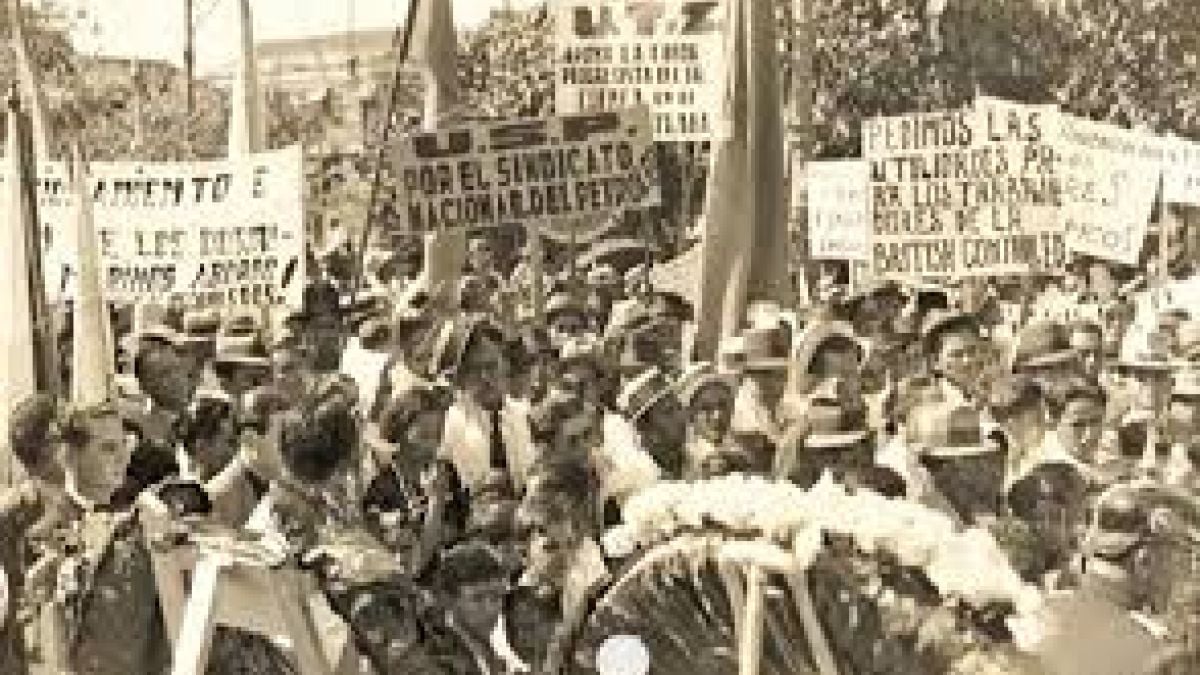1936 Oil Strike: Anti-Imperialist Action


Internet

Published at: 14/12/2024 08:00 AM
The Great Oil Strike, which took place between December 14, 1936 and January 24, 1937, generated momentous changes in the working conditions of Venezuelan workers, provoked immense popular support and has been one of the biggest battles fought by the people, led by the oil proletariat, against imperialism, its transnational corporations and its Venezuelan agents.
The first major workers' strike in the history of Venezuela took place in Zulia State, in the Cabimas, San Lorenzo, Mene Grande, Bachaqueros and Mene Mauroa oil fields and in the Cumarebo field in Falcón state. It began on December 14 and more than ten thousand workers and oil industry workers were paralyzed and lasted 47 days.
It was an event of extraordinary political significance and the political sectors that had promoted the June strike mobilized in its support, as well as the recently created trade union sectors in the rest of the country. Its management center was in Zulia and its management included prominent working-class comrades such as Manuel Taborda, Dilio Marín, Max García, Luis Emiro Arrieta, José Martínez Pozo, Domingo Mariani, as well as the communist leaders Juan Fuenmayor, Isidro Valles, José A. Mayobre, Rodolfo Quintero, Jesús Faria.
The workers heroically resisted the greater pressures of transnational corporations and the current government, a true puppet of imperialism. After 47 days, the López Contreras government declares an end to the strike, demonstrating the most shameful submission.
The conquered demands were imperceptible, but politically the day represented a fabulous qualitative leap: the proletariat remained united in the struggle, it understood that only by fighting can it advance its demanding and political objectives. It was the beginning of glorious days of struggles by oil workers until 1950.
Mazo News Team